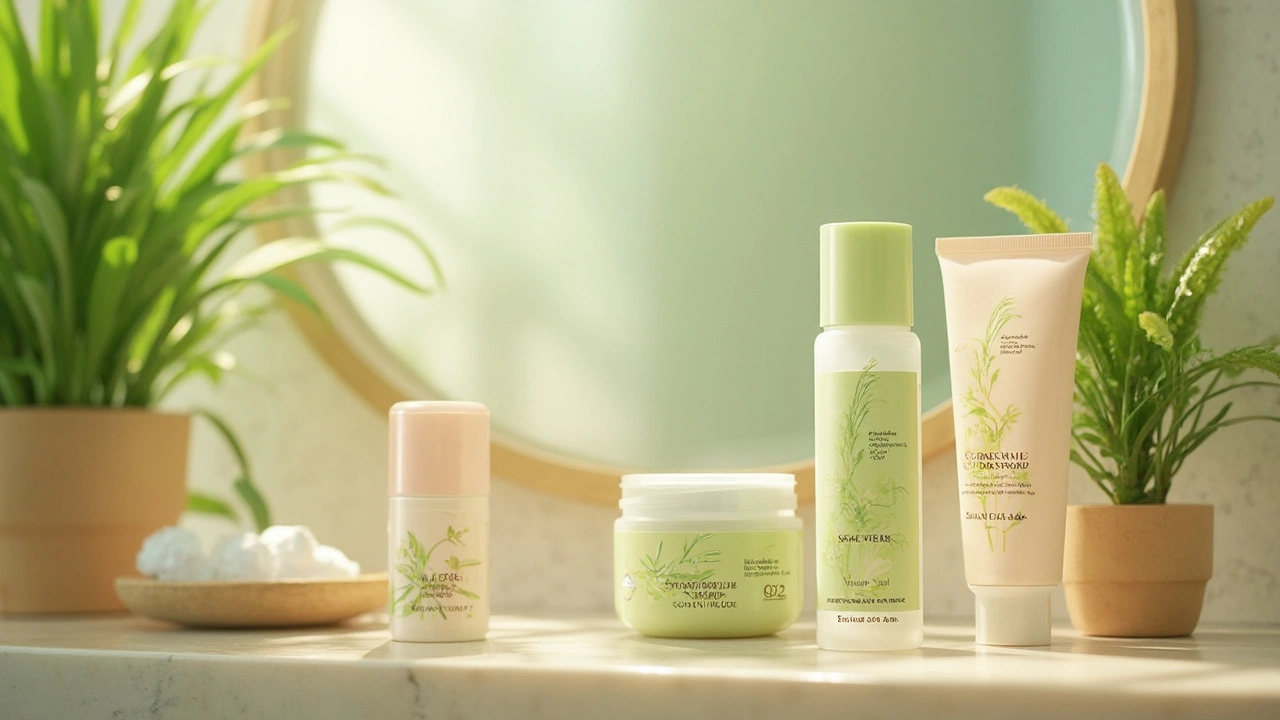Want skin that looks good without spending hours in front of the mirror? You don’t need fancy gadgets or expensive creams. A few everyday changes can make a big difference. Below you’ll find practical steps you can start using right now to keep your skin clear, smooth, and comfortable.
First off, water is your best friend. Aim for at least eight glasses a day and drink more if you exercise or it’s hot outside. Hydration helps the skin stay plump and less prone to flakiness.
Second, wash your face twice a day with a gentle cleanser. Skip bar soaps that dry you out and look for products labeled “non‑comedogenic.” Lightly massage the cleanser in, rinse with lukewarm water, and pat dry with a clean towel. Over‑scrubbing can damage the protective barrier and cause irritation.
Third, sunscreen is non‑negotiable. Even on cloudy days, UV rays reach your skin and speed up aging. Choose a broad‑spectrum SPF 30 or higher, apply it 15 minutes before heading out, and reapply every two hours if you’re sweating or swimming.
Fourth, keep your pillowcases and towels clean. Bacteria and oil build up on fabric, which can transfer to your face while you sleep. Switching to fresh linens weekly can cut down breakouts.
Finally, give your skin a break from heavy makeup. Use a mild makeup remover and let your skin breathe at least one night a week. This helps prevent clogged pores and redness.
What you eat shows up on your skin. Incorporate foods rich in antioxidants, like berries, leafy greens, and nuts. These fight free radicals that cause dullness and fine lines.
Omega‑3 fatty acids, found in salmon, walnuts, and chia seeds, keep the skin barrier strong and reduce inflammation. If you don’t eat a lot of fish, consider a quality fish oil supplement.
Vitamin C is a skin‑brightener. Add citrus fruits, bell peppers, or a daily vitamin C tablet if you need a boost. Vitamin E works well with vitamin C, so nuts and seeds are great side‑kicks.
Probiotics can improve gut health, which in turn can calm skin issues like acne and eczema. Yogurt, kefir, or a daily probiotic capsule can be helpful.
Don’t forget zinc. It’s essential for wound healing and can lessen acne flare‑ups. Pumpkin seeds, lean meat, or a zinc supplement keep levels in check.
All these nutrients work best when paired with the habits above. Consistency is key—your skin won’t transform overnight, but small daily steps add up.
Remember, everyone’s skin is different. If a product or food causes irritation, stop using it and try something else. When you notice persistent problems like severe acne or persistent itching, a dermatologist can provide personalized advice.
By drinking enough water, cleaning gently, protecting with sunscreen, sleeping on fresh linens, and feeding your body antioxidant‑rich foods, you set the stage for healthier skin. Try adding one new habit each week and watch how your skin responds. Simple, steady, and sustainable—that’s the recipe for lasting skin health.

Mottled skin discoloration and rosacea often go hand in hand, creating a unique set of challenges for those affected. This article dives into how these conditions are connected, offering insights into the causes and ways to manage symptoms. From understanding the underlying triggers to exploring practical skincare tips, readers will find valuable guidance on maintaining healthier skin. The goal is to arm individuals with knowledge and strategies to improve their daily skincare routine.